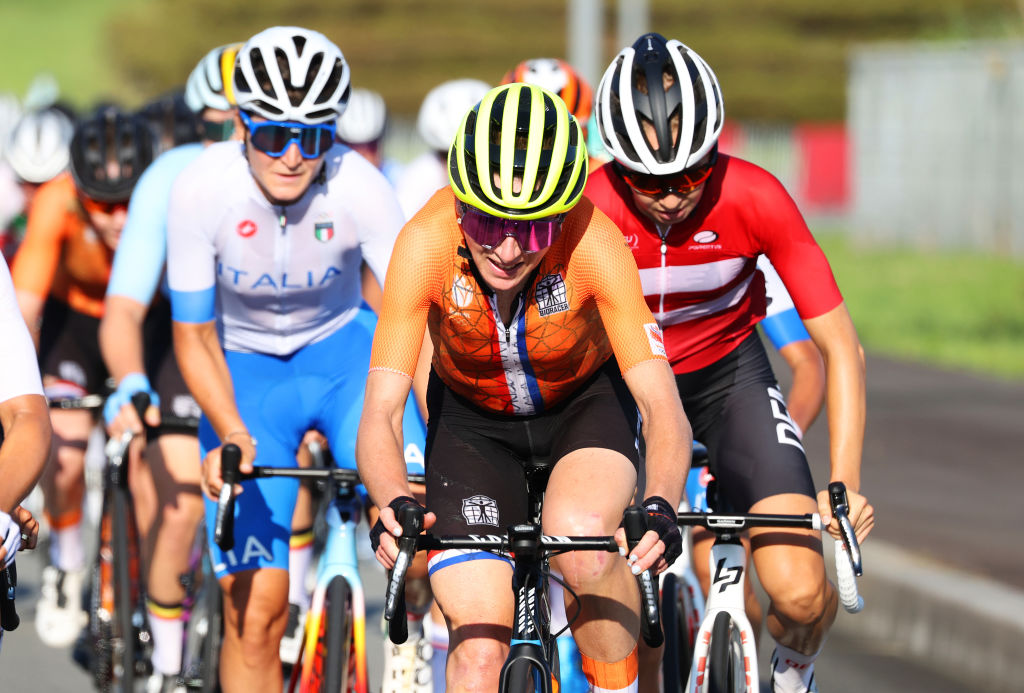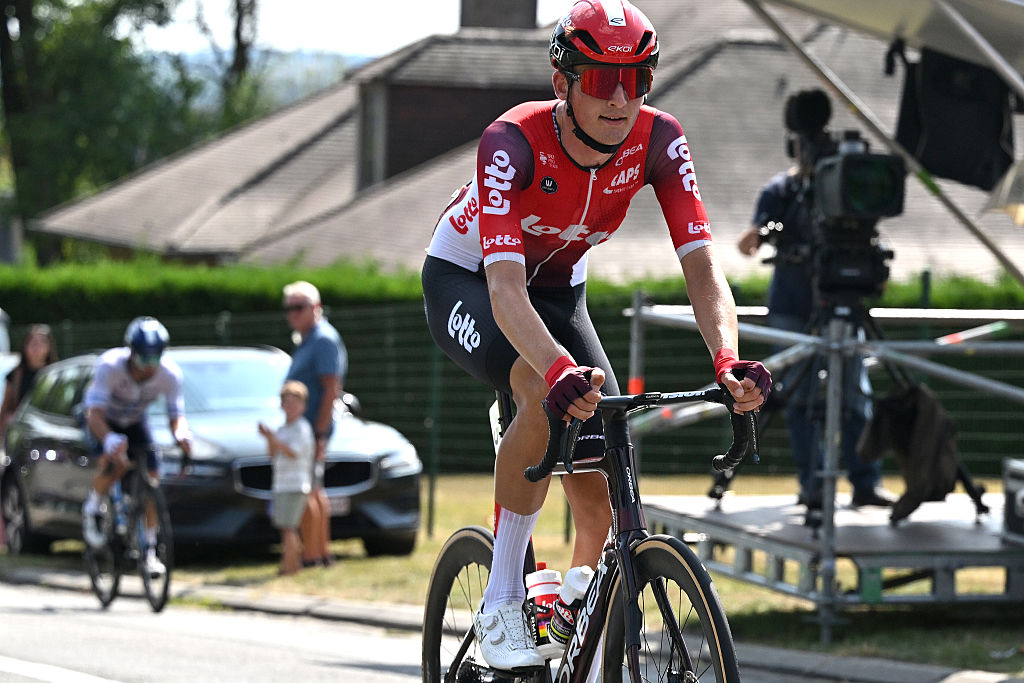Cecilie Uttrup Ludwig calls passive women's race 'absurd’ at Tokyo Olympics
'It was a pretty bad portrayal of women cycling' says Dane

The latest race content, interviews, features, reviews and expert buying guides, direct to your inbox!
You are now subscribed
Your newsletter sign-up was successful
Cecilie Uttrup Ludwig has expressed disappointment that bordered on annoyance and frustration over what she called a 'passive' women's road race at the Tokyo Olympic Games on Sunday.
The Danish all-rounder finished 10th on the day but questioned the tactics of the major nations in the main field and chase group. "That is completely absurd," she said in a report from Danish news outlet, Ekstra Bladet.
The main field was led in by a late attack from Annemiek van Vleuten (Netherlands) nearly two minutes behind the early-breakaway and shock gold medal winner from Austria, Anna Kiesenhofer.
“If I’m to be completely honest then this [the race/what happened] was shit. It was a pretty bad representation of female cycling," Uttrup Ludwig told the Danish Broadcasting Corporation (DR).
"I have no clue what the big teams are doing. It was completely nuts. I’m just sitting there alone and thinking what the hell the big teams are doing."
The elite women's 137km road race started from Musashinonomori Park and included two mid-race climbs over Donushi Road and Kagosaka Pass, for 2,692 metres of elevation gain, before a punchy final at the Fuji International Speedway.
Kiesenhofer, who lined up with no teammates, was part of an early-race move with Carla Oberholzer (South Africa), Vera Looser (Namibia), Omer Shapira (Israel), and Anna Plichta (Poland) that gained more than 10 minutes on the main field.
The latest race content, interviews, features, reviews and expert buying guides, direct to your inbox!
Looser and Oberholzer later lost contact with the breakaway, but behind it was only the German team that showed any concerted effort to put forth a chase to catch the remaining three escapees.
The women's road race fielded just 67 riders and teams ranged from between one and four riders per nation. The nations with the highest number of teammates included the Netherlands, Australia, Germany, Italy, and the United States, meaning much of the responsibility to control the race would have been up to these five squads.
The powerful Dutch team included double world champion and defending gold medallist from Rio 2016, Anna van der Breggen, as well as Annemiek van Vleuten, Demi Vollering and Marianne Vos, the gold medallist from London 2012.
The favourites heading into the race were the Dutch and all other nations looked to them to manage the gap to the breakaway, which they chose not to do in the early stages of the race. However, none of the major nations were represented in the move.
And after Van Vleuten crashed with roughly 65km to go, the Dutch squad decided to fire off attacks to bridge across and break up the field, rather than unite in an organised chase.
Van Vleuten then attacked with 50km to go and got what looked to be a healthy gap, which took pressure off the Dutch team to chase from the main field. Aside from Germany's attempt to close the gap, which was disrupted by multiple attacks from other nations, there was no other nation that put together an organised team chase to catch Van Vleuten or the breakaway.
Van Vleuten wasn't able to bridge the gap to the breakaway, and she was subsequently caught by what was left of the field with 25km to go. Meanwhile, Kiesenhofer distanced her two companions and continued on in a solo pursuit of the gold medal en route to the Fuji International Speedway.
"I get sad because this is just crappy," said Uttrup Ludwig, who lost her one teammate, Emma Norsgaard, to a mid-race crash.
"Generally, female cycling is really good. And then we have an Olympics, that gets across so far to all parts of the world, where we can really show how cool it [female cycling] is. And then we make such a mess. There, I have to clutch my head.”
The Dutch eventually organised a concerted team chase with 10km to go and while they reeled in breakaway remnants Shapira and Plichta inside 5km to go, it was too little too late to catch Kiesenhofer, who crossed the line with the gold medal.
Van Vleuten, who said she was unaware of that Kiesenhofer was still up the road due to a lack of communication on the road, attacked out of the field with 2km to go and crossed the line thinking she had won the Olympic title only to learn later that she had taken silver.
Elisa Longo Borghini (Italy) finished with the bronze medal and Lotte Kopecky (Belgium) was fourth, while Marianne Vos (Netherlands) took the small group sprint for fifth. Lisa Brennauer (Germany) was sixth, Coryn Rivera (USA) seventh, Marta Cavali (Italy) eighth, Olga Zabelinskaya (Uzbekistan) ninth, and Uttrup Ludwig 10th.
Despite being upset about the tactics of the bigger nations, Uttrup Ludwig congratulated Kiesenhofer for her hard-earned victory at the finish line in Tokyo.

Kirsten Frattini has been the Editor of Cyclingnews since December 2025, overseeing editorial operations and output across the brand and delivering quality, engaging content.
She manages global budgets, racing & events, production scheduling, and contributor commissions, collaborating across content sections and teams in the UK, Europe, North America, and Australia to ensure audience and subscription growth across the brand.
Kirsten has a background in Kinesiology and Health Science. She has been involved in cycling from the community and grassroots level to professional cycling's biggest races, reporting on the WorldTour, Spring Classics, Tours de France, World Championships and Olympic Games.
